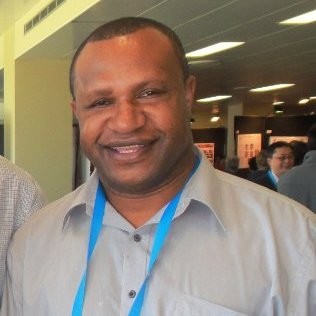By MIRIAM MALAWA
DEPUTY Chief Surgeon of the Highlands Region, has urged a revision of PNG’s cancer drug catalog to include up-to-date medications that demonstrate effectiveness in terms of potency, specificity to tumors, and overall treatment outcomes.
Dr Benjamin Yapo during the recent 57th Annual Medical Symposium in Port Moresby, voiced his concerns to the Sunday Bulletin regarding the need for Papua New Guinea to have laboratory infrastructure needed for the cellular properties and genetic mutational burden in our different cancers.
He also emphasised on the need for the National Department of Health (NDoH) to equip all hospitals with essential screening equipment, including mammography for breast cancer, colonoscopy for colon cancer, and ultrasound for detecting ovarian, liver, and other cancers on the basis that cancer is a huge problem requiring a nationalistic approach and not divided into 25 different problems for 25 different PHAs.
“Laboratory tests that can give specific tumor biology of a breast cancer for example are not available in any of our public hospitals. Knowing those specific tumor markers allow us to prescribe the right drugs specific for that type of breast cancer. But also deficient is that those very potent and specific drugs are not in our drug catalogue and not available for use even if ewe have the laboratory to test theses tumor properties. So really, breast cancer as common as it is often an untreatable cancer in PNG,” he explained.
“Again, we just resort to chemotherapy which is not effective for breast cancer. Other lab tests – ctDNA, next generation gene sequencing, methylation profiling, proliferative index, and PAM 50, Mammoprint etc are other more advance tests but are used not as often. We do not have these.”
He further noted that currently, many hospitals in PNG lack vital diagnostic tools such as CT scans, MRI scans, and ultrasound machines that help us map out a cancer. This deficiency severely hampers the ability to comprehensively address not only the scope of cancer but also other medical conditions.
“Once a tumor is diagnosed, we need to assess its effect further including the fact if it has spread. Spreads from breast goes typically to the liver, lung, bones, brain, and sometimes ovaries. To check these other organs, I need ultrasound scan machine, CT scanner, and an MRI scan. These are very basic tools for cancer, trauma, infection etc. It is a crime not to have these in any hospitals. Many hospitals in PNG lack CT scan, MRI scan, ultrasound scan etc so it is difficult to address the true burden of a cancer in a patient, you feel hopeless,” he said.
“Treating cancer in a particular body organ only is different in its modality from treating this same cancer after it has spread to other organs at distant sites.
“Breast cancer treatment success rests of proper tumor identity and biological characteristics. Because our labs do not have the capacity to identify tumor specificity, they just give us the tumor histology of anatomic description by confirming that this tumor is indeed arising from the breast and specifically from the breast ducts and not the breast lobules (so we can then call it ductal carcinoma of the breast), and that the cells are malignant in nature, cells look like they have invasive characteristics and thus invading surrounding tissue, and if they also involve spread to local lymph nodes.”
He added that every cancer type has unique biology and genetic influences, which can impact treatment success.
He said this step is crucial to ensure the best possible care for cancer patients in Papua New Guinea.

Dr Benjamin Yapo. – LinkedInpic

